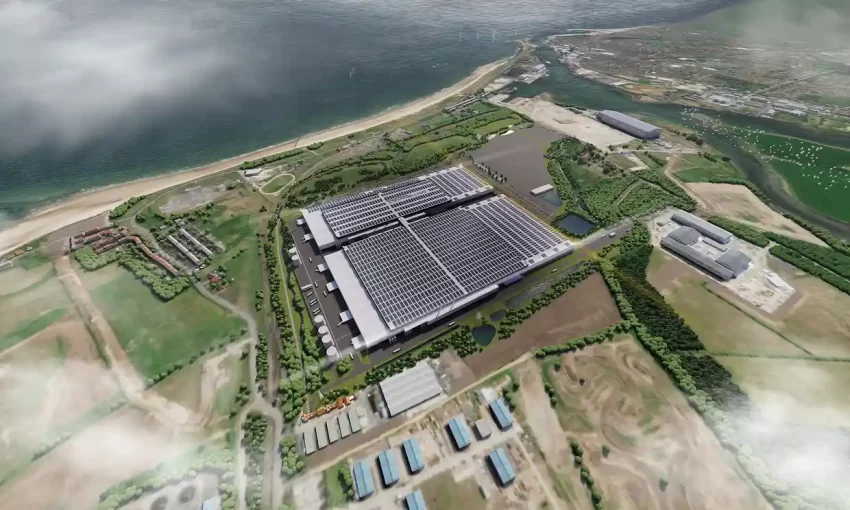You can also listen to this podcast on iono.fm here.
FIFI PETERS: Some important news came from the South African Reserve Bank today, the Sarb, saying that it has set up South Africa’s first deposit insurance body, called the Corporation for Deposit Insurance, or Codi. It has been set up to protect bank depositors, as well as to ‘bring further confidence to a resilient sector’ – in the words of the South African Reserve Bank.
For more on the story, we have Kuben Naidoo, who’s the deputy governor of the Sarb. Deputy Governor, thanks so much for your time, sir. So what exactly do depositors need protection from in terms of the purpose of Codi, and why is this institution being set up right now?
KUBEN NAIDOO: Good evening, Fifi, and thank you for your questions. Good evening to your listeners too. This is like an insurance policy. You would take out an insurance policy in case your home were to be burgled, or your car were to be stolen. Even though your home may never be burgled, or your car may never be stolen this adds a degree of protection to depositors.
At the moment, if a bank were to fail you may get some money from government if government sort, of out of the goodness of its heart, decides to give you some. But government is not legally obligated to, and they may not.
A deposit insurance is where you wire your bank, pay a very small premium, and over time there’s a fund that accumulates.
If there are bank failures then up to R100 000 of your deposit in a particular bank is covered. In short, that’s it.
FIFI PETERS: How long has this been in the pipeline for?
KUBEN NAIDOO: It’s been in the pipeline for a very long time. Most advanced economies have deposit insurance.
In fact, many countries on the African continent have deposit insurance. We are quite late in the game to introduce deposit insurance. The idea was originally floated by the Treasury as early as 2011 and it’s taken a significant amount of time to put it in place.
Codi is now legally established. It is a subsidiary within the Reserve Bank, so it’s a part of the Reserve Bank.
The Reserve Bank will run and administer the insurance scheme and will be responsible for paying out covered deposits in case a bank should default.
FIFI PETERS: Why the delay? Why did it take so long?
KUBEN NAIDOO: In 2011 government published something called the Red Book, which was quite a significant paper designed to protect the financial sector. Since then a lot has happened.
We’ve introduced the Twin Peaks legislation since then. We’ve introduced the Prudential Authority, the Financial Sector Conduct Authority, and now deposit insurance.
So it’s been a series of reforms over the past 10, 12 years to try and make the South African financial sector even safer and more resilient than it already was.
FIFI PETERS: So essentially anybody who has a bank account and has money in that bank account, savings in that bank account, should or can take up this insurance?
KUBEN NAIDOO: There isn’t a choice for an individual, if you have a bank account in a regulated bank in South Africa – and that could be any bank, any foreign or local bank, commercial bank, mutual bank or even cooperative bank.
If it has the word ‘bank’ in the name, then it’s a regulated bank and your deposit is automatically covered.
You don’t have to do anything. You don’t have to pay anything.
The banks would pay an insurance premium based on the size of their covered deposits. And if the bank were to fail, then government would pay out those depositors up to a R100 000.
FIFI PETERS: So there isn’t a chance of the bank maybe taking some of that premium or the payment that they pay for that insurance and passing it around to consumers, their customers?
KUBEN NAIDOO: Look, that may well happen.
Our estimate is that the premium is pretty low. It works out to around 20 cents per person per year.
So the banks might pay it, the banks might increase fees to pay that. But it’s a relatively small amount to give you peace of mind, and this is important.
When VBS Bank failed, it took two to three months for people to get their money, and people got a certain amount. In the end government had to use about R240-odd million of taxpayers’ money to subsidise depositors.
In this case, you’ll get your money within two or three weeks – hopefully less as we develop the systems, and there would be no call on the tax authority, the fiscus, to provide such money.
FIFI PETERS: And you say your depositors are covered for up to a R100 000?
KUBEN NAIDOO: Yes, up to a hundred thousand.
FIFI PETERS: What happens if you have more?
KUBEN NAIDOO: You may not get the amount over R100 000. It depends on the banks.
But essentially, like in VBS’s case, there were some people who had R150 000. They may have lost R50 000, or they’ll have to wait for the wind-up process. They may get 20 cents in the rand back for the additional amount. They may get 70 cents in the rand back, I don’t know. But they certainly are likely to lose some of the amounts over a hundred thousand that they have got.
Similarly for deposit insurance, if a bank were to fail and you have more than R100 000 deposited in a particular bank, then you could lose that amount.
I think there are two things here. One is we want to provide most South Africans with peace of mind, and our sense is most South Africans have less than R100 000 in deposit.
But we would also like people to be quite discerning on where they place their deposits. They must place their deposits in an institution that they trust, one that is less likely to fail. While we regulate all institutions, there are institutions that do fail sometimes.
FIFI PETERS: I made reference to VBS, but more recently we’re digesting the curatorship around Habib Overseas Bank, and we’re also digesting the news that happened in recent weeks around the mini banking crisis globally that started off in the US and then ended up over in Switzerland with Credit Suisse.
So, just to go back to the question around timing and why this deposit insurance is kicking in right now, is there any connection with what has happened globally that has caused the fast-tracking, it would seem, of Codi right now?
KUBEN NAIDOO: No, there’s no fast tracking. In fact it has taken a long time. The legislation was passed about a year, year-and-a-half ago. The president had to assent to the legislation, then the minister of finance had to publish what’s called a ‘commencement schedule’. So this has been very long in the making. We’ve been preparing and planning for it for at least five years.
FIFI PETERS: So no connection with global and even local events?
KUBEN NAIDOO: No, none whatsoever. It does stem from the post-financial crisis reforms of 2008. The original idea for South Africa to introduce deposit insurance came from that era, when many countries spent billions, or hundreds of billions of rands or dollars bailing out banks. We wanted to ensure that (a) we could protect deposits, and (b) we could protect governments if we ever were to have bank failures.
FIFI PETERS: I know this is going to be under the house of the South African Reserve Bank, but the board members of the Corporation for Deposit Insurance, who are they going to be?
KUBEN NAIDOO: It’s an independent board. It includes people from the Reserve Bank, myself as deputy governor responsible for financial stability, Ms Fundi Tshazibana, responsible for prudential supervision, but it indeed includes people from the Financial Sector Conduct Authority, and it includes people from the public. It’s an independent board whose job is to oversee the operations and the investments of the insurance scheme. But it’s essentially administered by the Reserve Bank, managed within the Reserve Bank.
FIFI PETERS: Are all Ts and Cs are fulfilled at this stage, or are there a few things to go before it becomes operational?
KUBEN NAIDOO: It becomes operational only on April 1, 2024.
We’ve still got some secondary legislation and regulations to pass, such as defining the type of account that will be covered, defining what information we need from you as an individual, what information we need from the banks, how frequently the banks will provide that information, all of that.
The system requirements, all of [those], would be spelt out in regulations which would have to be implemented over the course of the next year.
FIFI PETERS: Deputy Governor, just a parting shot. We often hear that our financial sector and our banking sector is very sound and healthy, but mostly that accounts for the big institutions, the big five banks, the big five, or the large financial institutions. Are the smaller guys okay just in this environment of low growth, of high inflation, of high interest rates? Is the smaller sector of finance and banking okay in your view?
KUBEN NAIDOO: The short answer is yes. Banks are operating in a difficult economic environment. We’ve had very low growth for 10, 12 years. Particularly since Covid we’ve had a very slow recovery. It’s a very difficult operating environment, and that pressure and tension is visible in the banking sector. When we supervise banks, we certainly take their environment into account. So the capital requirements on a smaller bank are often higher, because they often take more risk, or they may operate in a riskier sector. We take account of that through the capital requirement that we set to try and ensure the banking system overall is safe and sound.
FIFI PETERS: All right. Deputy Governor, thanks so much for your time. The deputy governor of the South African Reserve Bank is Kuben Naidoo.




